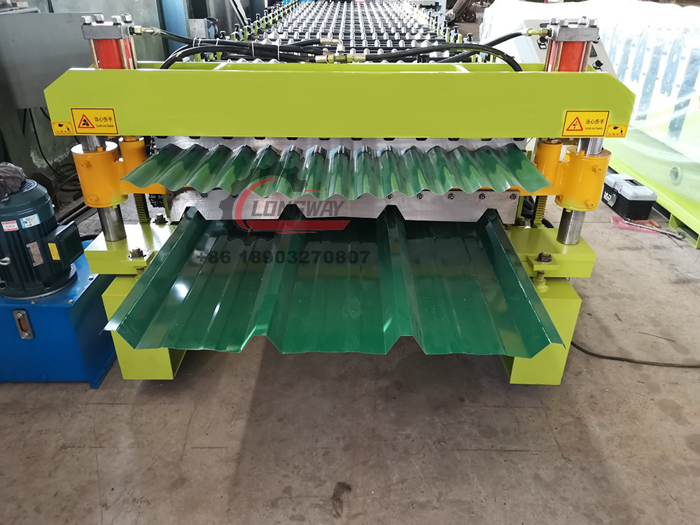Efficient Roll Forming Machine for Wall and Roof Panels with Precision Engineering Features
The Wall/Roof Panel Roll Forming Machine Revolutionizing Construction
In the ever-evolving construction industry, efficiency and precision are key components that can significantly impact project outcomes. One such innovation that has transformed the way building materials are produced is the wall/roof panel roll forming machine. This advanced technology offers a streamlined process for manufacturing durable, high-quality panels used in commercial and residential construction.
What is a Wall/Roof Panel Roll Forming Machine?
A wall/roof panel roll forming machine is a specialized piece of equipment designed to convert metal coils into long, continuous panels with specific profiles. These machines utilize a series of rollers to progressively shape the metal into the desired form. The result is a product that is not only strong and lightweight but also aesthetically appealing, making it ideal for a variety of building applications.
Key Benefits
One of the most significant advantages of the wall/roof panel roll forming machine is efficiency. Traditional methods of panel production can be labor-intensive and time-consuming. In contrast, roll forming allows for mass production with minimal waste. With the capability to produce large quantities of panels in a short period, contractors can significantly reduce lead times and meet project deadlines more effectively.
Moreover, the precision offered by roll forming technology ensures that every panel meets exact specifications. This level of accuracy minimizes the risk of errors during installation, leading to higher quality construction and reduced costs associated with rework. Additionally, the consistency in product quality enhances the overall durability and longevity of the panels, making them a cost-effective choice for builders.
Versatile Applications
wall/roof panel roll forming machine

Wall and roof panels produced by roll forming machines are versatile and cater to a wide range of applications. From agricultural buildings and warehouses to residential homes and commercial spaces, these panels are employed in various construction projects. The availability of different profiles, finishes, and colors allows architects and builders to tailor the panels to meet specific design requirements while maintaining functionality.
Furthermore, these machines can handle various materials, including galvanized steel, aluminum, and coated metals. This flexibility allows builders to choose materials that align with their budget and aesthetic preferences while still benefiting from the mechanical advantages of roll-formed panels.
Sustainability and Cost Efficiency
In today's environmentally conscious world, sustainability is a crucial factor in construction. The roll forming process is inherently more sustainable than traditional manufacturing methods. By minimizing waste and allowing for the recycling of leftover materials, these machines contribute to greener building practices.
In terms of cost efficiency, the speed and reduced labor requirements associated with roll forming translate to lower production costs. Also, the longevity of the final products ensures that buildings can withstand the test of time, reducing the need for frequent repairs or replacements.
Conclusion
The wall/roof panel roll forming machine represents a significant advancement in the construction industry, combining efficiency, precision, versatility, and sustainability. As the demand for high-quality building materials continues to grow, this innovative technology will play a pivotal role in meeting the needs of modern architecture. Builders and contractors who invest in roll forming machinery will not only enhance their production capabilities but also elevate the standard of their projects, ultimately shaping the future of construction.
In summary, as we move towards a more automated and efficient building landscape, wall/roof panel roll forming machines will remain at the forefront, driving innovation and excellence in material production.
-
Roof Panel Machines: Buying Guide, Types, and PricingNewsJul.04, 2025
-
Purlin Machines: Types, Features, and Pricing GuideNewsJul.04, 2025
-
Metal Embossing Machines: Types, Applications, and Buying GuideNewsJul.04, 2025
-
Gutter Machines: Features, Types, and Cost BreakdownNewsJul.04, 2025
-
Cut to Length Line: Overview, Equipment, and Buying GuideNewsJul.04, 2025
-
Auto Stacker: Features, Applications, and Cost BreakdownNewsJul.04, 2025
-
Top Drywall Profile Machine Models for SaleNewsJun.05, 2025








